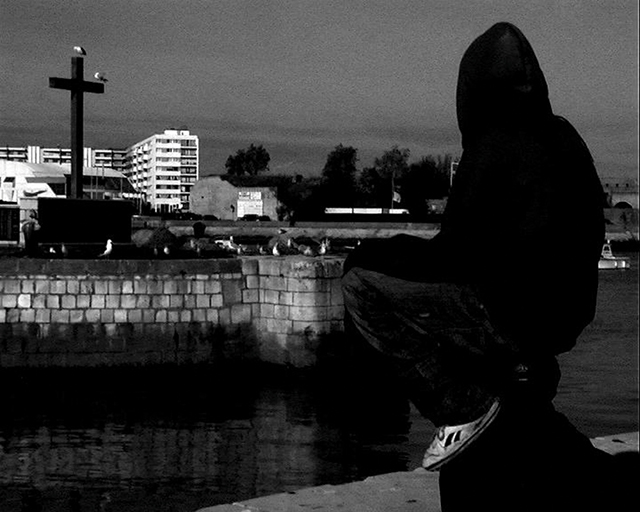Sylvain George / William Parker
At the occasion of the Courtisane Festival, Sylvain George’s film Qu’ils reposent en révolte (des figures de guerre) will be presented for the first time with a live accompaniment by jazz legend William Parker (1952, New York). Widely acknowledged as one of the most important musicians to emerge from the experimental jazz scene in New York, Parker’s impressive career spans several decades. A master of bass improvisation, he has collaborated with musicians such as Alan Silva, Rashid Ali, Cecil Taylor, Peter Brotzmann, Derek Bailey and Hamid Drake, played in many configurations, led a number of ensembles and composed music for opera, dance and film. Cinema is one of the pillars of his musical vision – he counts among his sources of inspiration avant-garde filmmakers such as Bruce Baillie, Stan Brakhage and Jonas Mekas. He writes in one of his texts: “it is the role of the artist to incite political, social and spiritual revolution. To awaken us from our sleep and never let us forget our obligations as human beings, to light the fire of human compassion”. During this performance Parker will play the bass solo, rooting the musical spaces between bow, fingers and strings, in a dialogue between hearing and seeing, in search for a pure experience of beauty and energy. Or as a spectator to one of his concerts once described “as if his bass were raw wood he was using to light an internal fire”.
